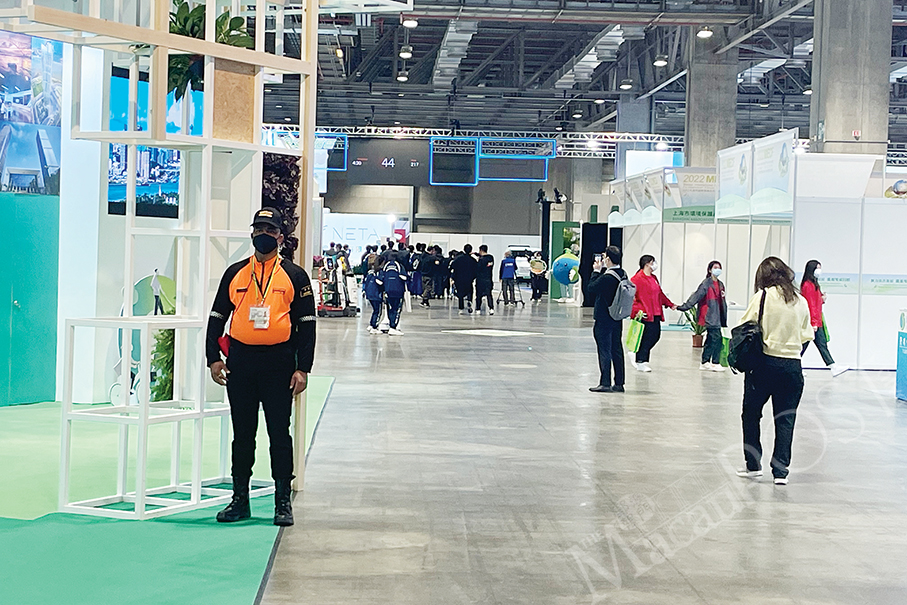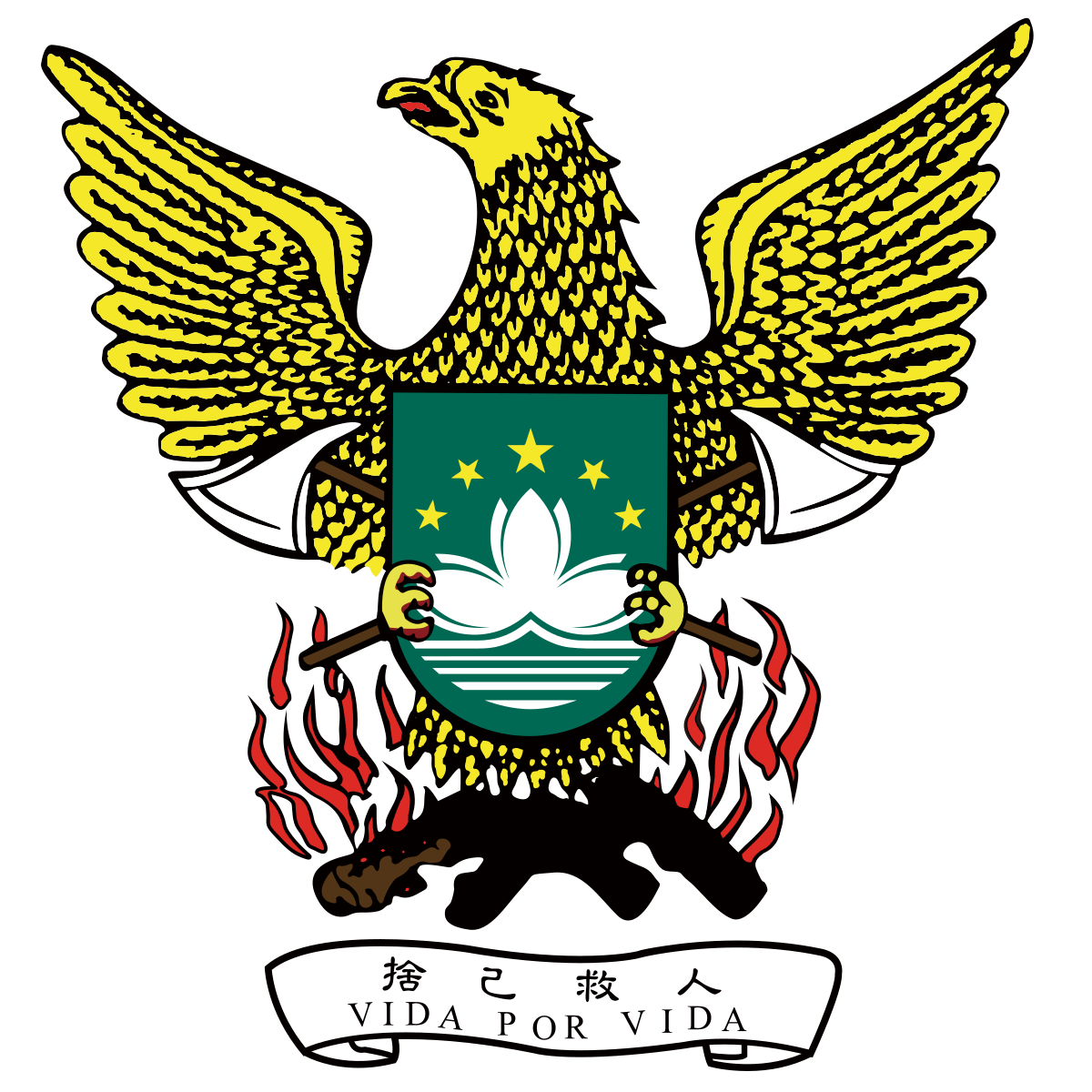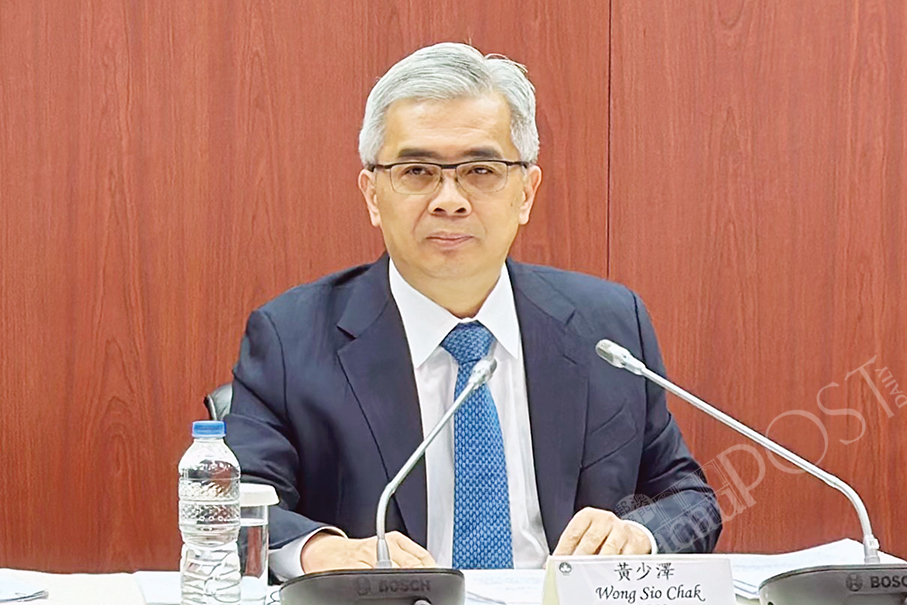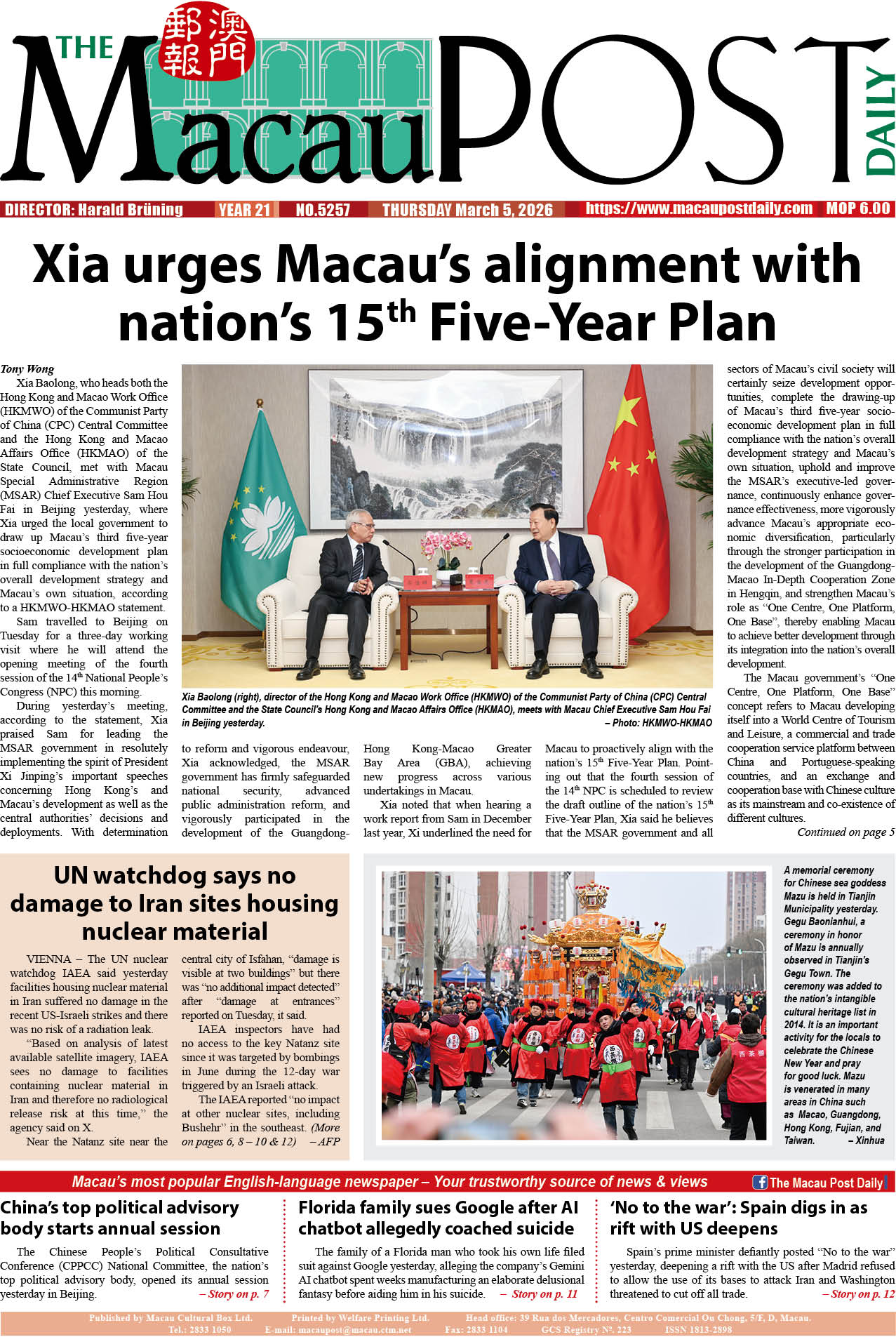The organisers of the “2022 Macao International Environmental Co-operation Forum & Exhibition” (2022MIECF) invited the media yesterday to conduct interviews with three of their exhibitors at the Venetian’s Cotai Expo Hall, with all saying that the fair was “effective”.
The three-day event, which ended yesterday, comprised six zones, including the newly added “Eco-friendly Tableware Zone”, “Remote Exhibiting Zone” and the “Green Mobility Zone”.
The “Green Public Day” yesterday was open to the general public.
Jacky Wu Mingjie, the owner of a corn starch disposable tableware company from Shantou who participated in the event for the first time, said that the expo was “a very good” opportunity for market development, adding that during the three-day event, he signed several business cooperation arrangements with local restaurants.
Wu pointed out that the market information for eco-friendly tableware in Macau was “relatively poor”, adding he believed that the event, which enabled him to sign agreements with local businesses, was a good opportunity for Macau to expand the market in the future.
As for the production cost of degradable eco-friendly tableware, he said that the cost was “slightly higher than” that of plastic products, but he was quick to add that he believed that as long as there is continuous research and development as well as demand, the cost of some raw materials would be reduced in the future.
Larry Lai Kit Hon, the owner of a bamboo fibre disposable tableware company from Zhongshan, said that “two to three” local companies and one mainland enterprise expressed interest in cooperating with his company, adding he hoped to expand his business to more places through Macau in the future.
Lai said that right now the only bamboo fibre products in his business are straws, pointing out that if his raw material factory can be successfully implemented in the future, he believes that there will be “great development space”. He also pointed out that his business can turn any agricultural products, agricultural waste or plant fibres into raw materials, and then turn them into various manufactured products. In other words, he added, the cost of the process of “turning waste into treasure” was not too high, but the key still depended on civil society’s environmental awareness and “practical actions”.
Lai underlined that although the price of bamboo fibre tableware is about 10 to 20 percent higher than other eco-friendly tableware, the cost would be lower than plastic if it could be mass-produced.
The government announced in September that the import of plastic knives, forks and spoons will be completely banned from January 1 next year, while the import into Macau of non-biodegradable single-use plastic drinking straws and drink stirrers has been banned since January 1 this year.
Terence Lam Chi Seng, associate professor of the University of Macau’s (UM) State Key Laboratory of Analog and Mixed Signal VLSI (AMSV) and Institute of Microelectronics (IME), told reporters at the fair that a number of government entities and mainland companies were interested in “diversified application scenarios of the wireless charging” technology invented by his team, adding that further negotiations on the matter would be held in the future.
The UM research team, in collaboration with a local company, modified a wireless charged electric motorbike, which was displayed at the expo.
Lam said he hoped that the wirelessly charging technology can be manufactured in the future, so motorbike owners could then directly charge their vehicles by pushing them to the “wireless charging pile”.

Students visit the “2022 Macao International Environmental Co-operation Forum & Exhibition” during yesterday’s “Green Public Day” at the Venetian’s Cotai Expo Hall. – Photo: Yuki Lei








